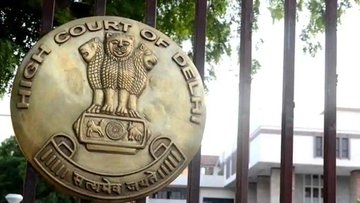New Delhi, Oct 18 (IANS) The Delhi High Court has criticised the exclusion of “infertile couples” from the benefits of surrogacy, stating that it prima facie violates their fundamental right to parenthood and denies them access to legally and medically-regulated procedures and services.
The court had earlier issued notice on the petition against the notification issued by Union Ministry of Health and Family Welfare barring the use of donor gametes for an intending couple willing to undergo surrogacy.
The amendment after the notification dated March 14, states that the couple undergoing surrogacy must have both gametes from the intending couple and that donor gametes are not allowed.
The case is of a married couple, medically deemed infertile due to wife’s medical conditions, including the inability to produce viable oocytes (eggs) and the couple has been barred from opting surrogacy services as per the impugned notification.
The petitioners argued that before the notification introduced this exclusion, they were searching for a surrogate because the wife was found to be infertile. However, they were subsequently deprived of their right to parenthood, and their fertilised embryo was rendered “legally unviable”.
A division bench of Chief Justice Satish Chandra Sharma and Justice Sanjeev Narula pointed out the discrimination faced by infertile couples based on their ability to produce viable eggs. The court observed that if the wife could produce viable eggs but couldn’t carry a pregnancy, the intending couple would be allowed to undergo surrogacy. However, if the wife couldn’t produce viable eggs, they would be barred from becoming parents through surrogacy.
The court said that the notification violated the basic rights of married infertile couples to parenthood, denying them access to legally and medically-regulated procedures and services.
The court further noted that the notification lacked rational justification or intelligible criteria for discriminating between citizens based on their ability to produce gametes for surrogacy.
In an interim order, the court allowed the petitioners to continue the process for gestational surrogacy using their preserved embryos, which were created using donor eggs and the husband’s sperm before the issuance of the challenging notification.
The court said that the amendment should not retroactively render their legally-fertilised embryos unviable, as the petitioners have a vested and constitutionally-protected right to parenthood.
The plea by the couple stated: “The amendment virtually renders the Assisted Reproductive Technology (Regulation) Act, 2021 otiose and is in conflict with the stated object of that Act. The said Act eschews the concept of genetic purity of the child born out of ART Process and surrogacy.”
According to the petitioners, the impugned notification discriminates against infertile couples solely on the basis of whether they are capable of carrying gestational pregnancy. In addition, it claims that the modification has the potential of exposing bona fide infertile couples to criminal prosecution and leaving them vulnerable to surrogates by virtue of sections 40, 41 and 42 of the Surrogacy Act.
The plea stated: “The amendment creates invidious discrimination between similarly situated persons without disclosing any intelligible criteria. The only basis for denying the Petitioners surrogacy services is their inability of one of them to produce gametes, which is otherwise a medically indicated basis for infertility among couples.”

